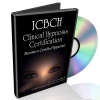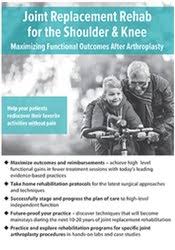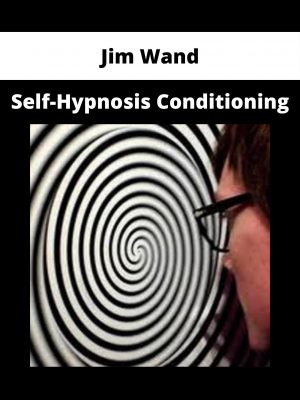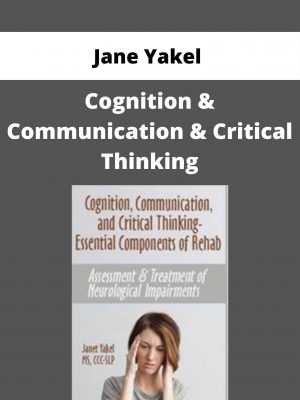Terry Trundle – Joint Replacement Rehab for the Shoulder and Knee
$200 Original price was: $200.$75Current price is: $75.
Shopping Instructions:
- DISCOUNT 15% : SHOP15
- Product Delivery: Within 1 – 12 hours after purchase.
Watch Terry Trundle as he relates over 38 years of practical, evidence–based interventions he has used with this exact population.
Terry Trundle – Joint Replacement Rehab for the Shoulder and Knee
Over the next 15 years, joint replacements are projected to grow by as much as 673%, and as 60 becomes the new 40, more patients than ever are entering into these surgeries expecting full return to function and many active years to come. This seminar explores cutting edge interventions for maximizing high–level functional gains and returning patients to the daily activities that are important to them.
Watch Terry Trundle as he relates over 38 years of practical, evidence–based interventions he has used with this exact population. Explore the risks and benefits of today’s surgical procedures with an emphasis on newer, less invasive options such as hemiarthroplasty and reverse prosthesis, and discover how pre– and post–op rehab is evolving to keep pace. Take home the tools today that you need for tomorrow, such as:
- Practical exercises patients can do early and at home
- Techniques for joint replacement rehab (CPM, manual therapy, exercise dosing, and adjunct therapies)
- A roadmap for what the future holds for joint arthroplasty procedures
- Define current concepts in total knee and shoulder arthroplasty and the correct interventions based on stages of healing and recovery
- List the variety of options in replacing or resurfacing the knee and shoulder and how to tailor your rehabilitation to the individual
- Design functional rehabilitation exercise programs based on the latest research
- Develop pre– and post–operative rehabilitation plans and realistic, goal–based outcomes for this patient population
- Discuss the history of joint replacement and what therapists can expect in the next 10–20 years
- Implement a formula of progressive rehabilitation that incorporates pivoters, protectors and positioners
Would you like to receive Terry Trundle – Joint Replacement Rehab for the Shoulder and Knee ?
TOTAL KNEE ARTHROPLASTY AND HEMIARTHROPLASTY
- Anatomy of the articular cartilage and the progression of arthritis
- Surgical options with gender-specific components and hemiarthroplasty
- Missing links in preparing the operative procedure for the progression of the three phases of rehabilitation
MOBILITY AND MUSCULAR RECRUITMENT WITH EVIDENCE-BASED EXERCISES
- Manual exercise for the patella-femoral joint
- Extension re-lengthening by pre-functional mobility from hip to foot
- Hip core strengthening – why is this so vital to recovery?
- Open kinetic chain muscle recruitment – why terminal extension and short arc quads are not the same thing
- Hamstrings over quadriceps co-activation exercises to prepare for function
- Progressive closed kinetic chain loading: knowing that proprioception may be the missing link in recovery
LAB #1 – KNEE:
- Manual therapy for mobility of the knee
- Open and closed kinetic chain exercise for proprioception
TOTAL SHOULDER ARTHROPLASTY INCLUDING HUMERAL HEAD REPLACEMENT
- Regular verses reverse prosthesis
- Hemiarthroplasty for humeral head replacement
- Why consider the reverse prosthesis and how it effects recovery
- How do patients prescribe their function?
- The importance of the Subscapularis protective protocol
- Self-applied range of motion needs to be reconsidered
- Scapular mobility and stabilization: the core of shoulder surgery recovery
- Three vital motion patterns that produce the zone of function
EVIDENCE-BASED EXERCISES BASED ON THE MODE OF CONTRACTION
- What is the missing link of total shoulder replacement
- Formula of progressive rehab: pivoters, protectors, and positioners
- Progressive exercise based on the modes of contraction
- Corrective exercises for elevation “hike” dysfunction
- The geriatric “Big Three”
LAB #2 – SHOULDER
- Manual preparation of scapular and gleno-humeral mobility
- Exercises for stabilization toward function
CASE STUDIES AND OUTCOME STUDIES
Related products
NLP & Hypnosis
NLP & Hypnosis
iAwake Technologies – Beginner’s Mind (Neuroflow Series) [6 WebRips – WAV User Manual – PDF]
NLP & Hypnosis
NLP & Hypnosis
NLP & Hypnosis
NLP & Hypnosis
NLP & Hypnosis






![Iawake Technologies – Beginner’s Mind (neuroflow Series) [6 Webrips – Wav User Manual – Pdf]](https://copicourse.com/wp-content/uploads/2021/08/iawake-technologies-beginners-mind-neuroflow-series-6-webrips-wav-user-manual-pdf-300x400.jpg)





